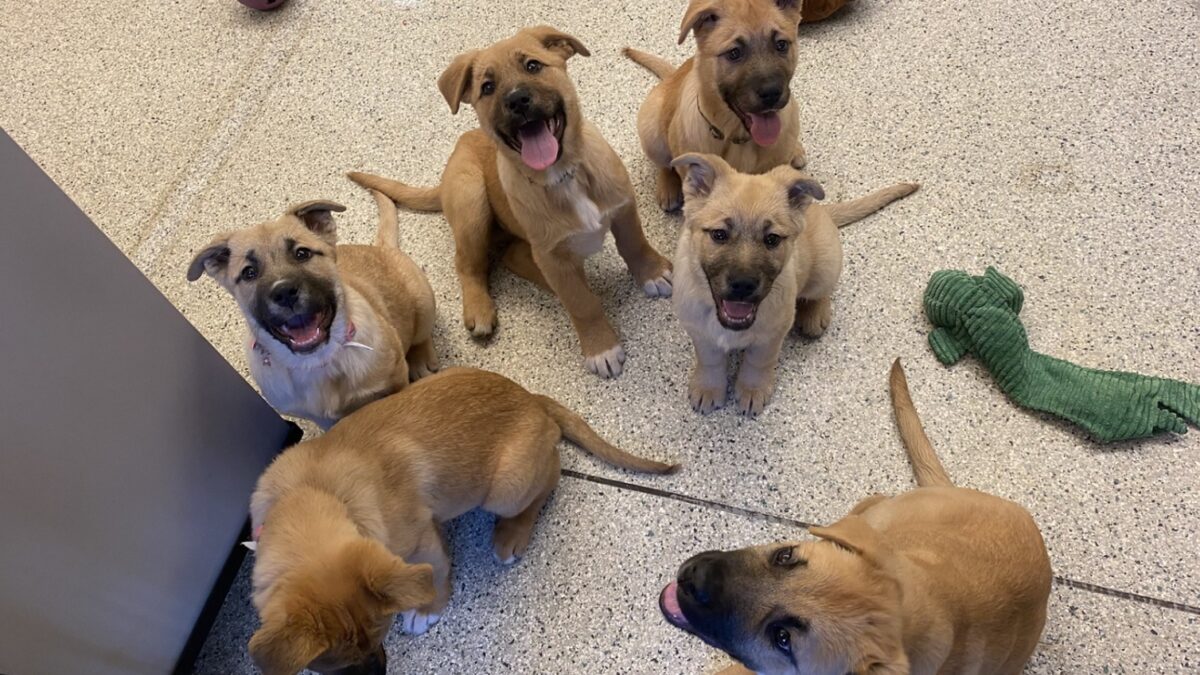Animals shelters have a puppy problem. And they are raising the alarm about how many fur babies they’ve been taking in.
The Ottawa Humane Society even put out an article flagging this “concerning trend.” Since October 2023, the animal-protection organization says it has noticed a sharp increase in puppies coming to the shelter.
“In the early days of the pandemic, demand for dogs was much greater than the supply and people were ready to buy a dog regardless of the cost to themselves or the animal,” OHS president Sharon Miko wrote in the article.
“Since then, demand has cooled and adoptions across the country have slowed to a glacial pace, leading many shelters to levels of overcrowding they haven’t seen in years.”
The abandoned dogs driving the overcrowding likely come from irresponsible breeders who couldn’t sell them, Stephen Smith, communications director at the OHS, told Capital Current.
“Most folks are happy to take in (a puppy), so to have a number of litters arrive at our doorstep is a bit strange,” he said. “That brought us to consider that there might be breeders who have bred these puppies, and then were unable to sell them and as a result, bring them to the Ottawa Humane Society to be rehomed.”
Though the shelter hasn’t had trouble getting the puppies adopted, Smith says the society worries about more pets being abandoned outdoors and not taken in.
Other shelters across the country are also getting more puppies than they know what to do with.
In 2023, the Alberta Humane Society saw a 226-per-cent increase in its puppy intake, according to Anna-Lee Fitzsimmons, AHS director of public relations.
“To these people that started breeding during the pandemic, please stop. Please stop making puppies and get your animals spayed and neutered. That is the solution to this problem.”
Anna-Lee Fitzsimmons, director of public relations, Alberta Humane Society
She says adoptions spiked during the pandemic as people were eager to add companions to their quarantined households. This created a rise in puppy mills and backyard breeders, who were trying to profit off the then-lucrative dog breeding industry.
Puppy mills are large-scale commercial breeding operations typically associated with poor conditions, such as a lack of exercise, space and care. Backyard breeders are smaller scale and usually run from a residence, but often have similar poor conditions.
Now that the stay-at-home life is largely behind Canadians, and as the country suffers through a cost-of-living crisis, people aren’t buying dogs. But breeders haven’t gotten the memo, said Fitzsimmons, and continue to breed dogs without having buyers lined up.
“To these people that started breeding during the pandemic, please stop,” she said. “Please stop making puppies and get your animals spayed and neutered. That is the solution to this problem.”
Camille Labchuk, executive director of Animal Justice Canada, an animal law advocacy organization, said the government is contributing to the problem by not regulating the dog breeding industry.
In December 2023, Ontario passed the Preventing Unethical Puppy Sales Act. It implemented conditions, punishable by a fine, meant to stop harmful breeding practices, such as breeding a female dog less than a year old.
But these conditions are useless, said Labchuk, because they can’t be enforced.
“The government doesn’t have any way of enforcing the laws against existing breeders because it doesn’t know where those breeders are operating,” she said. “There’s no requirement right now that someone who wants to breed dogs get a licence.”
“Instead of accepting responsibility for this situation at the government level, the government is pushing this problem onto the backs of compassionate people who volunteer and donate for animals.”
Camille Labchuk, executive director of Animal Justice Canada
Labchuk said the government needs to act now and demand that dog breeders get licensed. While the surplus of puppies continues to grow, the issue falls entirely on the shoulders of shelters.
“They’re (shelters) staffed by people who are often volunteers and just care about animals, and they rely on donations from the public to do this work,” she said.
“Instead of accepting responsibility for this situation at the government level, the government is pushing this problem onto the backs of compassionate people who volunteer and donate for animals.”
If the issue isn’t meaningfully addressed, Labchuk says she worries about the ultimate outcome: “The broader concern is that we are going to have overrun shelters, and the dogs are going to be euthanized.”





It’s not euthanasia if the shelter is killing dogs (or cats or rabbits…) for lack of adoptions. It’s killing. Euthanasia is done to end irremedial suffering.
The live release rate of cats from shelters is horribly low due to the high reproductive “efficiency” of cats, so at all times, people should adopt from rescues and shelters until such time that demand outstrips supply.